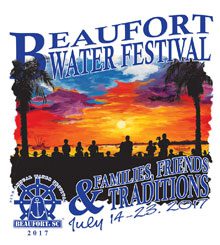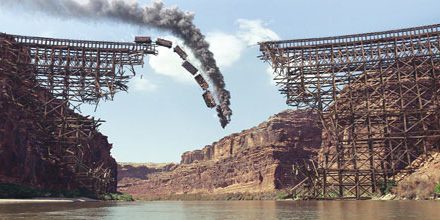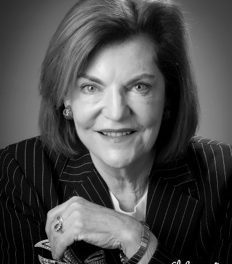A Son’s Thoughts on Father’s Day
My wonderful fa ther has been gone for nearly 12 years. Supported by some emotional distance on his untimely death and the encouragement of our dear editor, Margaret Evans, I am taking a shot at a column that has lingered unwritten in the back of my mind for many of those years. As Father’s Day passes through yet again, it feels like the time is finally right.
ther has been gone for nearly 12 years. Supported by some emotional distance on his untimely death and the encouragement of our dear editor, Margaret Evans, I am taking a shot at a column that has lingered unwritten in the back of my mind for many of those years. As Father’s Day passes through yet again, it feels like the time is finally right.
Robert Rudolph Sparacino started with nothing except brains and motivation and went on to have a soaring career. But in so doing, he remained a wonderful human being and that was his legacy. He was the first generation son of Italian immigrants, born in New York City in 1927. “Rudolph” was in honor of handsome Italian born silent screen star Rudolph Valentino (“The Sheik” was one of his popular films) who had just died the year before and I don’t know where “Robert” came from. Dad arrived on the foamy sea of change that was the Roaring Twenties, at just about high tide. Calvin (“Silent Cal”) Coolidge was president. A hotdog with a cold drink cost 22 cents, and a movie ticket was just a quarter so you and your date could have a fine time for less than a buck.
The New York Yankees fielded a glamorous and deadly offense in 1927, “Murderers’ Row”; Babe Ruth punctuated that lineup by battering an astonishing 60 home runs (a record that stood for decades and was underwritten by plenty of beer, yes, but no banned substances). The stock market (Dow) had already jumped 50% for the decade with a much bigger surge coming up, “Wings” won best picture (remember Clara Bow?) and life was good to great for most Americans. The country was flying higher than a nickel kite at happy hour.
Dad didn’t know many luxuries growing up but he did recognize at least one solid gold truth: the value of a good education. His parents had little schooling but my grandfather Phillipo repeatedly reminded his young son Robert that realizing the American dream and avoiding the lifetime of physical toil he had endured (beginning at age 8 in Italy loading heavy bags of flour onto donkeys headed to market) meant going to college. And go to college Dad certainly did, earning a B.S. in electrical engineering from City College of New York and a master’s from Brooklyn Polytechnic Institute. The back end of his undergraduate work was done on the G.I. Bill after he served a tour in the Army, stationed in France and Germany. Once they realized they had a budding engineer on their hands who loved music, they assigned him the job of recording engineer with the Army band.
Dad married my mom, Marguerite, a pretty and smart New York City teenager in 1949 and I came along in 1950. Two more sons and eight years of engineering work later, he had the guts to go back to school, Massachusetts Institute of Technology no less, and earned his doctorate in electrical engineering in 1961. I remember those M.I.T. years well. I was nine or so and doing nine year old stuff, while he was either going full tilt in class in Cambridge or buried under a mountain of papers in his small home office, shrouded in cigarette smoke. Filtered Kents got top billing. I asked him years later about the smoking and he confessed to routinely blazing through 3-4 packs during a single exam. Lots of coffee, too, a lifelong habit far less pernicious though he eventually did quit smoking.
Dad’s career took off like a Polaris missile after M.I.T., further evidence that our government made a great investment when it introduced the G.I. Bill in 1944. He held increasingly senior positions at General Motors and then Xerox. The GM years included leading the research and development team that developed the guidance systems for the Apollo program. At Xerox, his team developed the first practical color copier. In later years, he went into venture capital, mentoring many start-up companies and their typically young management teams. He was brilliant, certainly, but above all a truly nice man, someone who loved working while surrounded by likeminded people. He could be a tough boss and never suffered fools well, but everyone who knew him recognized his essential humanity, fairness, and sense of humor. He was ever committed to my mother and one of the easiest fathers in the world to be proud of and I remain firmly so to this day.
Maybe the best job he ever took on, though, was that of grandfather. Jack Walter came along in 1985. He arrived with dazzling blue eyes and a perfect head of brown hair. More importantly, the little tyke had a smiley, impish personality and was a joy to be around. He still is, as a matter of fact, and got lots more of his grandfather’s technical savvy and people skills than I did. Dad grabbed hold of that sparkling child and along with my mother lavished him with all the love and caring that grandparents could muster. Dad had the means (and energy!) to take Jack W. on a series of amazing trips. These two amigos traveled eagerly to Paris, Rome, Sicily, The Dominican Republic, Texas. And oh yes, London. London was Dad’s favorite city outside the U.S. and he adored showing the sights to his grandson. The little guy didn’t just tag along, mind you. He was clever at quickly figuring out various subway systems in their travels, for example, and was a fearless tourist. Once again, Jack W. left me in the dust regarding an important talent – navigation – though I never minded one bit.
My time in Dad’s last years was especially precious. We’d talk, share feelings and experiences, and maybe go fishing, though that was never his favorite activity. But he was the kind of fellow who always seemed to put others first. That said, I do recall him having a ball hooking into some pretty great New England bluefish. And I’ll just never forget his easy laugh, whether in person or during the seemingly endless phone calls to friends and business associates.
I try not to dwell on regrets in this life, and Dad surely didn’t either. I do wish, though, that he could have lived to see Jane and me in our lovely Lowcountry home, so far away from New York City (and London!). He was always up for a new adventure and would have loved it here. The sights, sounds, smells and, of course, the food. Had he been able to meet our wonderfully energetic editor here at Lowcountry Weekly, he would no doubt have called her “a piece of work,” a phrase he reserved for his favorites and, yes, one surely had to earn it. But mostly, he would have simply loved being with his family. That would be the greatest gift he left Jane and me and our son. And one, thank heavens, repeated by so many other fathers across this land.
So thanks, Dad. You did good… terribly, wonderfully, unalterably good. Thanks for now and forever.






